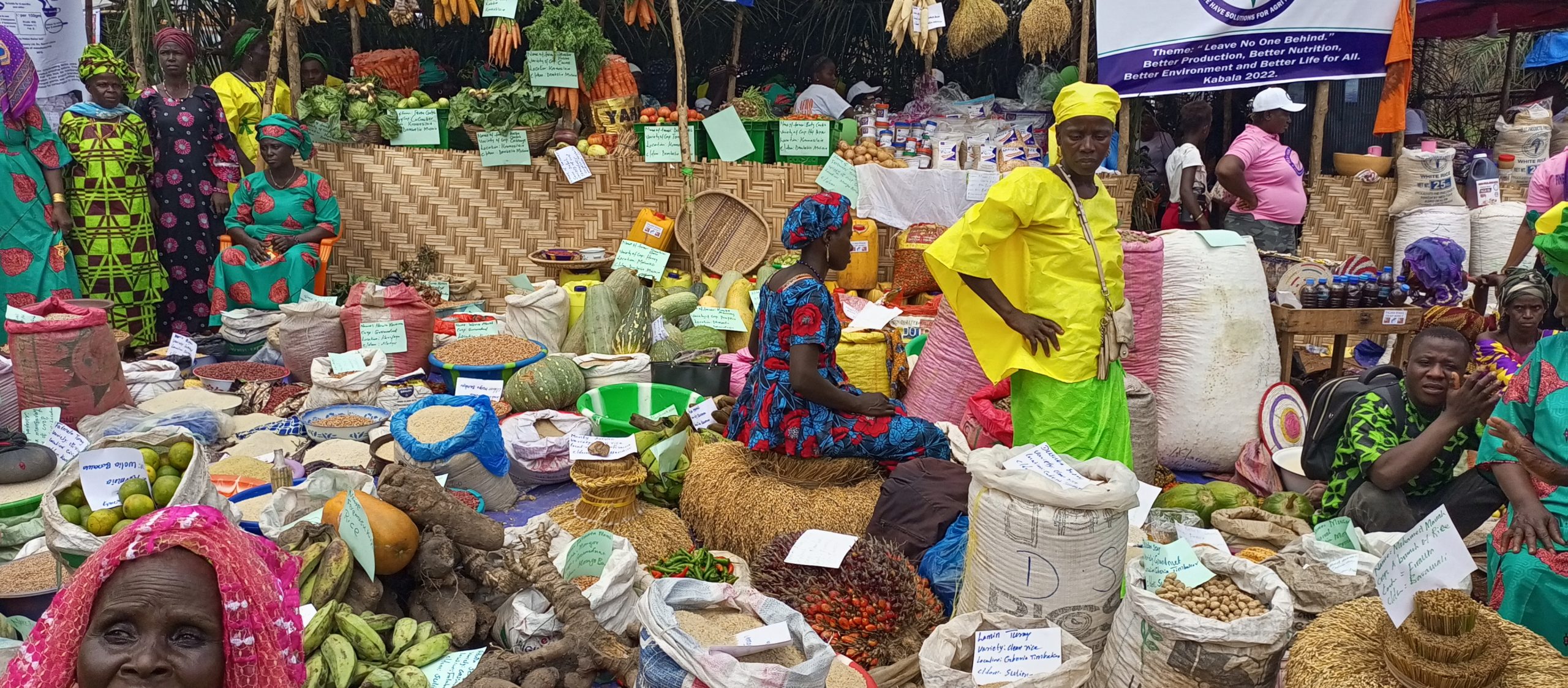Movement Matters #5 – Mansofinia Agric Farmers’ Organisation (MAFO)
This month’s Movement Matters features Aiah Marrah and Lansana Kondeh, two contributors to the formation of MCLD Sierra Leone and initiators of Mansofinia Agric Farmers’ Organization (MAFO). Aiah and Lansana share their experiences launching a community-based organization and the power of youth in community-led development.
Cover Photo: MAFO support women at agricultural trade fair, October 16, 2022. Credit to MAFO
Sera Bulbul: What is MAFO’s story? What steps did you go through before launching in April 2019 and how has the organization developed and grown in time?
Mansofinia Agric Farmers’ Organization (MAFO) is a community-based organization in Sierra Leone consisting of youth that are dedicated to providing knowledge to local farmers – especially women – on agronomic practices, technology, and enterprise development, contributing to improving the quality of schools, solving issues of inadequate materials in schools, advocating for the removal of corruption and fraud in schools, advocating to the government to invest in health system and the management of preventable diseases, and also advocating for sustainable livelihood, local economy, and poverty alleviation.
MAFO started as a students’ pressure group where students from the Falaba district began to organize themselves, discussing how they could contribute to helping grassroots women and men after their graduations from various universities and colleges. The organization was formed to give back to the community. MAFO started meeting in person and online and set up a secretariat at 10 Allen Street Freetown. In our first approach, we decided to establish a Junior Secondary School and some members started volunteering to teach in the school, the school is now running strongly and has been approved by the government of Sierra Leone. MAFO intends to establish a non-formal system of learning in tailoring, gara-tie dying, catering, and hospitality. On April 21st, 2019, after engaging the entire membership and acquiring all the necessary documents, MAFO was successfully launched in Freetown. The central theme of the launching was paying back to our motherland. MAFO has established partnerships with the Movement for Community-Led Development West Africa and global chapters, National Farmers’ Federation Sierra Leone, Fambul Tok, Freetown City Council, Falaba District Council, Ministry of Agriculture Falaba District and Ministry of Social Welfare Gender and Children’s Affairs establish relationships with foundations and philanthropists.
SB: How did each of you get to this point in your careers, and what are you the proudest of?
As young people we have always been passionate about helping people with the knowledge acquired, we believe that utilizing what we have to help others is of good essence for community development and boosts local talents for the eradication of extreme poverty.
Lansana Kondeh: I am one of the initiators of the Mansofinia Agric Farmers organization and contributors to the formation of the MCLD in Sierra Leone wherein the name Manofinia was given after my birth village-Mansofinia. I am a graduate of the Institute of Public Administration and Management-University of Sierra Leone, where I studied Pure Accounting. I have also worked as Junior Auditor, Teacher and Property Valuator, and am currently the Led Head of MAFO where I contribute to developing and positioning the aspirations of the organization.
Aiah Marrah: I am another one of the initiators of the Mansofinia Agric Farmers organization and contributors to the formation of the MCLD Sierra Leone. I graduated from the Association of Business Executives (ABE) United Kingdom, an affiliate college of the Institute of Public Administration and Management University of Sierra Leone. I studied Business Studies and Management with a Bachelor and have worked as an Administrator, IT, Resource Center Manager, and Farmer Field School Facilitator. I have contributed to developing and positioning the aspirations of the organization and am currently the Program Manager.
Our proudest moment is to be remembered for our work in the community.
SB: Can you tell me more about the vision and mission of MAFO? How did you select your focus areas?
The Vision-Make everybody self-food sufficient, create awareness in education and quality health system for all.
The Mission–strengthen local poor women’s rights and opportunities for agriculture, education, and health to take part in society, sustainability, livelihoods, and boost the local economy.
MAFO has three thematic areas in Agriculture, Education, and Health. Our organization is full of talented people who have graduated from various universities and studied different course areas and decided to embark on these three interventions to upscale the community to reach some standards and compute with other districts of Sierra Leone.
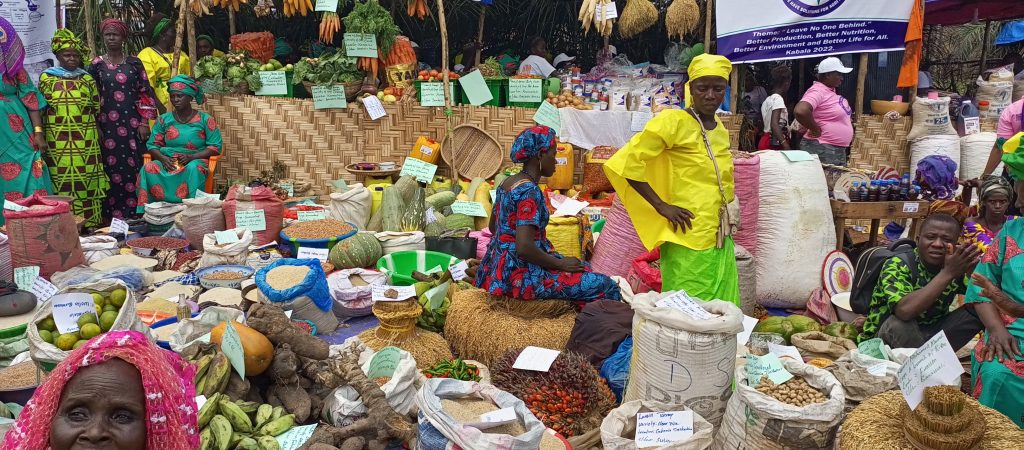
Agriculture is the backbone for economic growth and improves the living standard of people from extreme poverty; MAFO will organize and develop the capacity of local women farmers through a cooperative model using climate change, informed agricultural improvement models, local processing of products, and establishing strategic marketing connections.
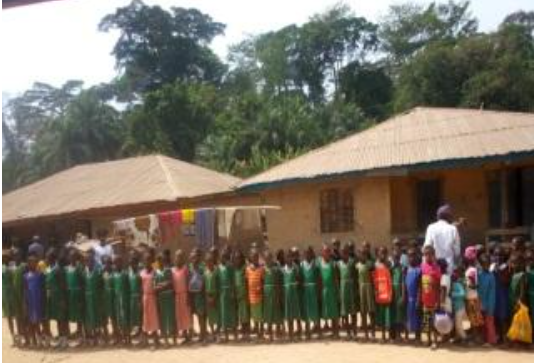
Education- Access to good quality education is one of the most powerful weapons, education provides marginalized people with a virtual income, which boosts opportunities for people, increases the likelihood of social mobility, engages community actors, and connects schools with the government for access and enrollment of free quality education.
Health- Sierra Leone has a resilient health system that is responsible for its demand, advocates for investment in the health system of the country, and accountability measures that will be beneficial to the citizenry and government to manage preventable diseases.
SB: How does MAFO scale up community-led work and strengthen the capacity of female farmers?
MAFO’s approach is to strengthen work and improve the living standard of the community people in remote places in Falaba. MAFO has developed programs in Neya, Nyedu, and Kulor-Saradu Chiefdoms in the Falaba District and Nimikoro and Gbense Chiefdoms in the Kono District. We trained women on savings and investment in agriculture and strengthen their capacity to harness opportunities for loans. As a result, there is profit to invest in agriculture and savings from your profits.
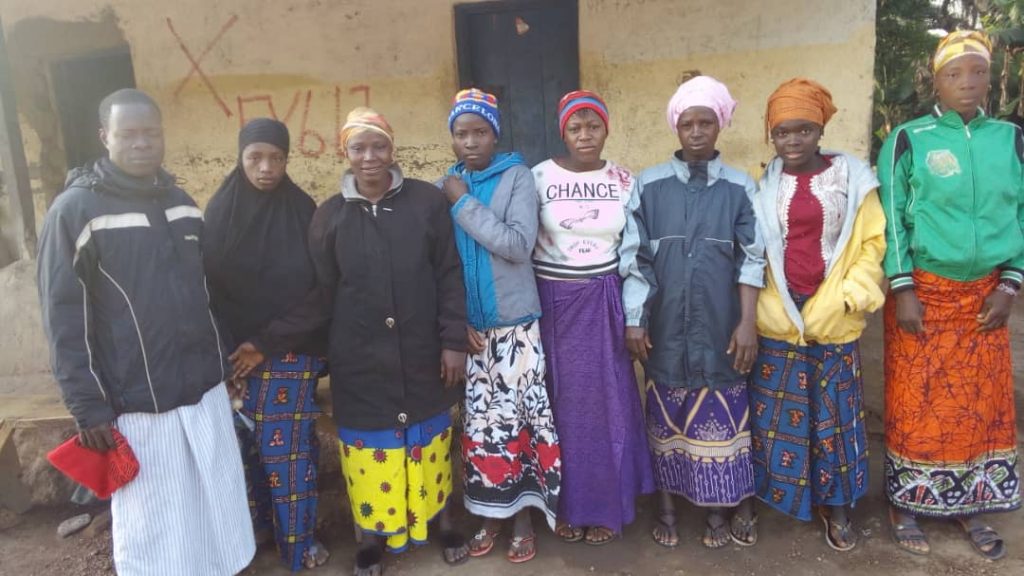
SB: What is unique about MCLD Sierra Leone?
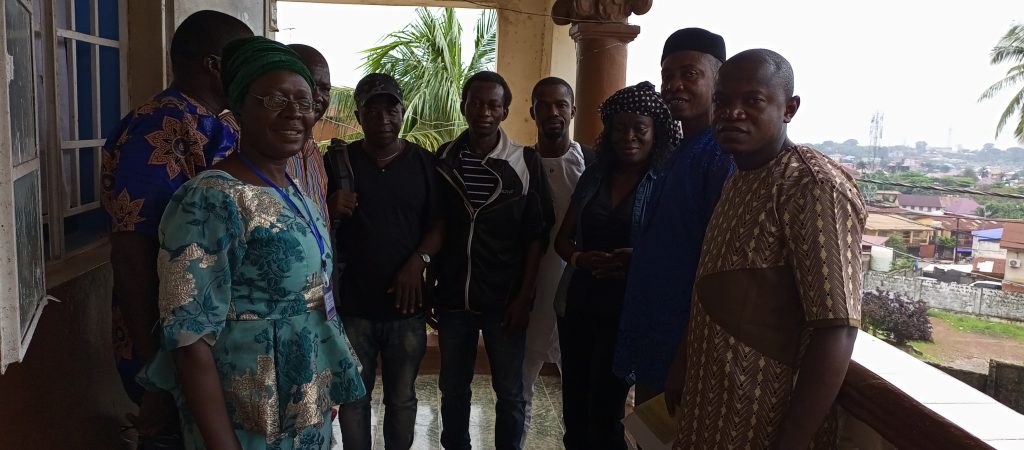
MCLD has launched its ambitious programs in front of stakeholders at the Sierra Leone Association of Journalists Head Quarters in Freetown, this intervention gives a feasible outlook of the movement where CSOs and government have gained mutual understanding and engagement. In our monthly leadership meetings, we believe that learning exchange visits for all partners are of the essence. In line with this, One Village Partners supports activities where the spirit is to learn from each partner member. The Movement for Community-Led Development has started its ambitious aspiration of fundraising both locally and internationally to support core activities on a nationwide campaign for nonviolence on the conduct of free and fair elections in Sierra Leone by June 2023. MCLD is also in the process of meeting like-minded organizations to support, coordinate and implement programs on cross-cutting issues like youth, gender, and good governance and partnerships.
SB: How do you see the role of youth in community-led development? What can MCLD do for youth?
Nowadays, youth tend to ask questions more than their predecessors did, and they tend to be dynamic and demanding. Youth make up 60% percent of Sierra Leone’s population and thus many players have seen the need to involve youth in their development agendas. In community-led development approaches, youth are key in ensuring that community work is well executed. They have the energy, strength, and zest, and as a result of these qualities, they can be relied on for any key decision-making position. We believe that youth should be placed at the helm of affairs in the work of MCLD. MCLD should promote youth with dreams and empower and build up their capacities for effective leadership succession planning.
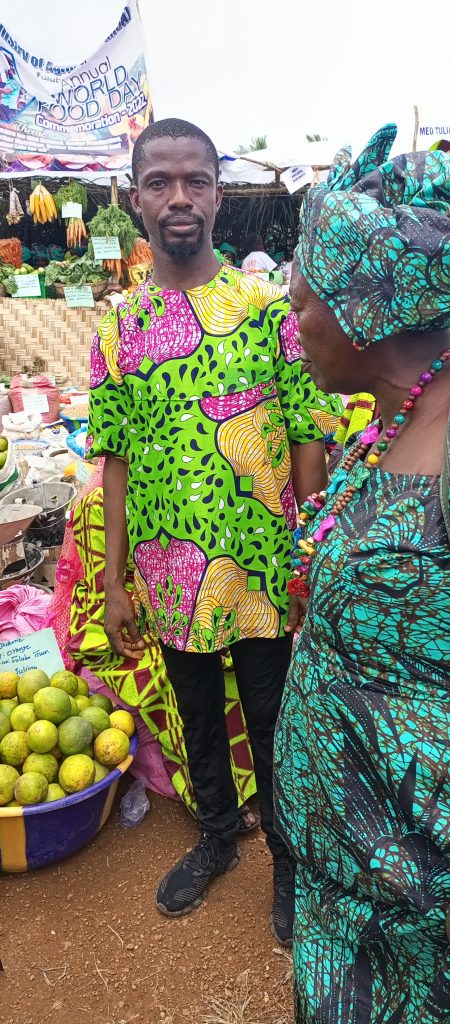
SB: What advice would you give someone who is new to community-led development?
Lansana: Development starts from the individual. You have to be part of the process and take the development in your own hands. At MCLD we bring this awareness of needing to take ownership of the process for sustainability.
Aiah: CLD is a new way to solve community problems for community people. To do community-led development you have to put community voices there at the center.
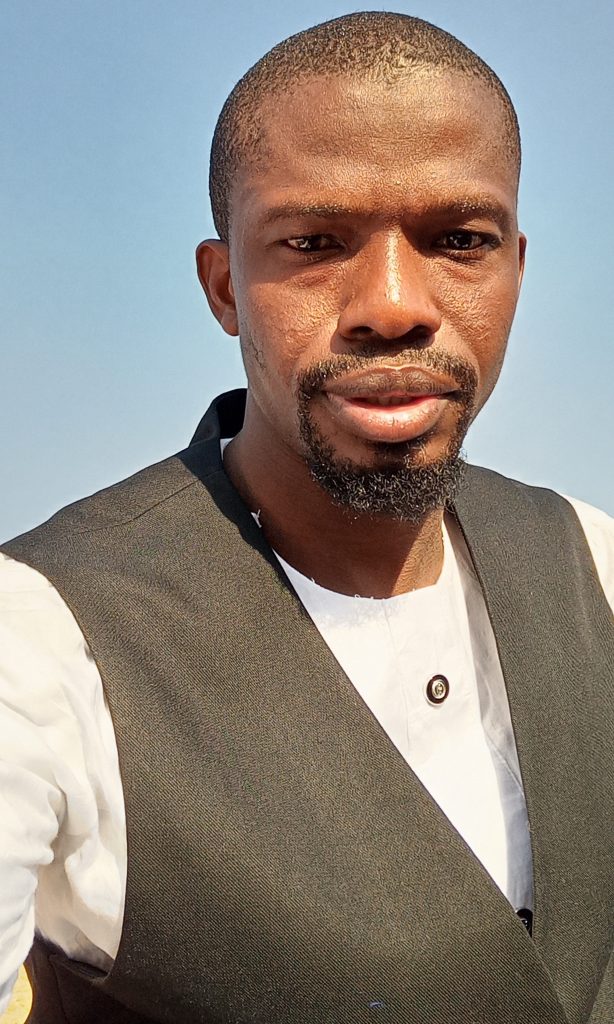
Aiah Marrah – Programme Manager, Mansofinia Agric Farmers Organization (MAFO)
Aiah Marrah was born in Koidu Town on 14th April, 1988, to a Koranko father from Fankaia Village, Delmandugu Chiefdom Falaba District, Mr. Yiera Mambu Marah, and a Kono mother-Finda Hawa Marrah. Aiah Marrah parents were mainly involved in farming and artisanal mining for several years; the parents gave birth to eight children- three sons remaining whilst five have demised. Looking at the history behind the loss of many children from preventable diseases, Mr. Marrah observed that after graduating, he would like to contribute to advert some of these menaces in the communities. Mr. Marrah still believes that there are lots of people who dwell and live in communities that lack access to clean water and medical facility and education for preventable diseases.
Aiah Marrah-started his childhood education at the Roman Catholic Primary School, and later proceeded to Islamic Secondary School, Hamile College of Commerce and Technology, Institute of Public Administration and Management, the Association of Business Executives and Administration and Management Institute.
Aiah Marrah holds a United Kingdom Bachelor in Business Studies and Management, with four diplomas in Development Studies for Rural Africa, Human Resource Management, Information Technology, and Accounting and Finance. Aiah has worked as Programme Administrator, Programme IT, Resource Centre Manager and Farmer Field School Facilitator. Mr. Marrah is currently the Programme Manager for the Mansofinia Agric Farmers Organization and Steering Committee Co-chair of the Movement for Community-Led Development Sierra Leone chapter.
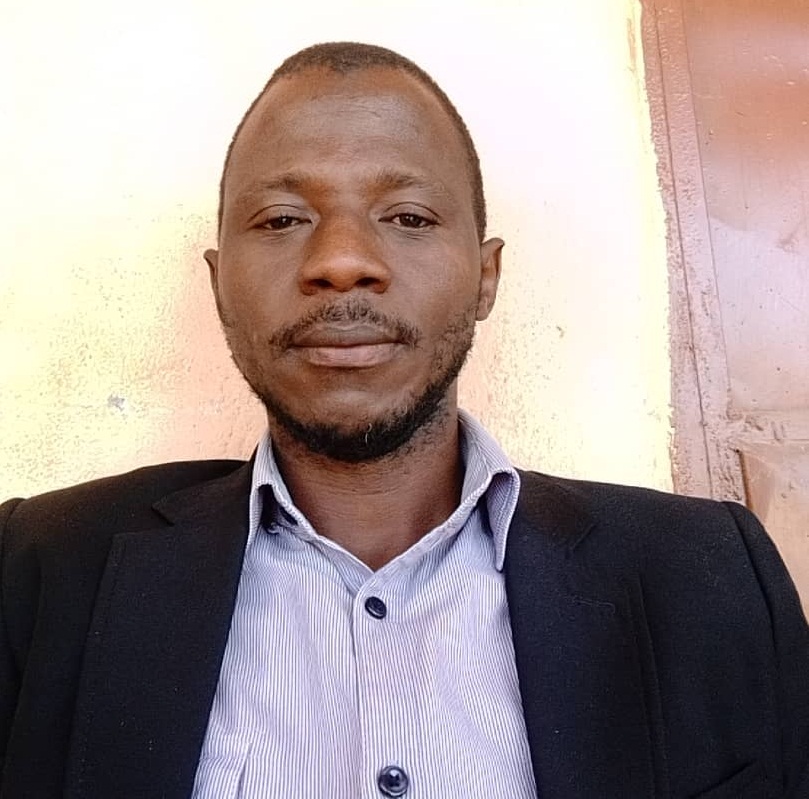
Lansana Kondeh – Lead Head, Mansofinia Agric Farmers Organization (MAFO)
Lansana Kondeh was born in Mansofinia Village, Neya Chiefdom Falaba District, to Koranko parents (Osman Kondeh), Pa Kondeh is currently the Paramount Chief Speaker for the Neya Chiefdom Administrative Council. Mr. Kondeh believes in farming and owns one of the largest cocoa and coffee plantations in Mansofinia, is a traditional authority married to 2 wives and 8 children. Lansana Kondeh believes in the nomadic nature of the people living in those communities, and after graduating decided to contribute to changing their lives and living standards.
Lansana Kondeh started his childhood education at No. 6 village, Services Primary School and later proceeds to Roman Catholic Primary School, Islamic Secondary School and the Institute of Public Administration and Management. Lansana Kondeh holds a BSC (Hons) in Applied Accounting and Certificate in Computing
Lansana Kondeh has worked as an Underwriter, Financial Secretary for Neya Youth Development Organization, Junior Auditor, Teacher and Property Valuator. He is currently the Lead Head of Mansofinia Agric Farmers Organization and Steering Committee Co-chair of the Movement for the Community Led Development.


